Search Results
Showing results 1 to 20 of 20

Physics Tug of War
Learners set up books with rubber bands stretched between the books. When two identical books are stretched apart and released, they move back toward each other an equal distance.

Watch It Fly
Source Institutions
Learners observe projectile motion by launching wooden balls off of a table top. They set up a rubber-band launcher so that each ball experiences a consistent amount of force.
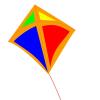
Building Tetrahedral Kites
Source Institutions
Working in teams of four, learners build tetrahedral kites following specific instructions and using specific materials.
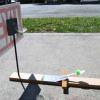
Parabola Basketball
Source Institutions
In this activity, learners build mini-basketball courts and explore the laws of physics. Learners discover that everything you throw or shoot on earth travels in a parabola.

Magnetic Marble Run
Source Institutions
Learners explore magnetism and motion as they build a simple marble run. Learners test different arrangements of plastic and cardboard tubes, bottles, and cups on a magnetic board.

Construction Technologies: Construct the Strongest Bridge
Source Institutions
Learners work in pairs to create three simple types of bridges, a beam bridge, an arch bridge, and a suspension bridge.
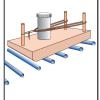
Newton Car
Source Institutions
In this activity, learners work in teams to investigate the relationship between mass, acceleration, and force as described in Newton's second law of motion.

Marble Drop Game
Source Institutions
Build your own version of a favorite carnival game, in which a marble races down a maze consisting of rows of nails.

Doughy Physics
Source Institutions
Learners drop two different masses of play dough and observe how long it takes them to hit the ground.

Swinging Yo-Yo
Source Institutions
Learners build a pendulum from a yo-yo, and then design their own experiment to determine what affects the pendulum's period of swing.
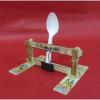
Catapult
Source Institutions
In this activity, learners build mini catapults using paint paddles and a spoon. Use this activity to introduce learners to forces and projectile motion.
Build a Borneo Glider
Source Institutions
In this inquiry-based activity, learners investigate the basic forces of flight as they construct their own paper glider that represents a rainforest creature from Borneo (large, tropical island in So
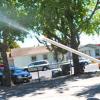
PVC Water Squirter
Source Institutions
In this activity, learners build a water squirter using a PVC pipe, dowel, and foam. This activity is great for the summer time and introduces learners to forces and water pressure.
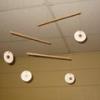
Rotational Equilibrium
Source Institutions
In this activity, learners explore the concept of rotational equilibrium. Learners work in teams to estimate and determine the force within a mobile design.
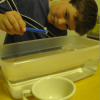
Shrinking Cups
Source Institutions
This is a quick activity (on page 2 of the PDF under Gecko Feet Activity) about the forces of gravity and surface tension and how their behavior is influenced by size.

Sliding and Stuttering
Source Institutions
Learners use a spring scale to drag an object such as a ceramic coffee cup along a table top or the floor.
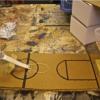
Finger Basketball
Source Institutions
In this activity, learners build mini-basketball courts using cardboard and measuring spoons. Use this activity to introduce learners to catapults, forces, and levers.
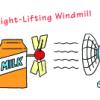
Blowin' in the Wind
Source Institutions
In this environmental engineering activity, learners build windmills using everyday items. The first challenge is to build windmills that spin when placed in front of a fan.

Prepare for a Construction Zone Field Trip
Source Institutions
In this activity, learners explore work, forces, simple machines, and construction. This lesson guide includes simple ways to demonstrate these principles as well as hands-on activities.
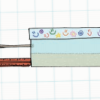
No-Slip Grip
Source Institutions
In this physical sciences activity, learners explore friction. Learners investigate the factors that affect the force required to move an object.
